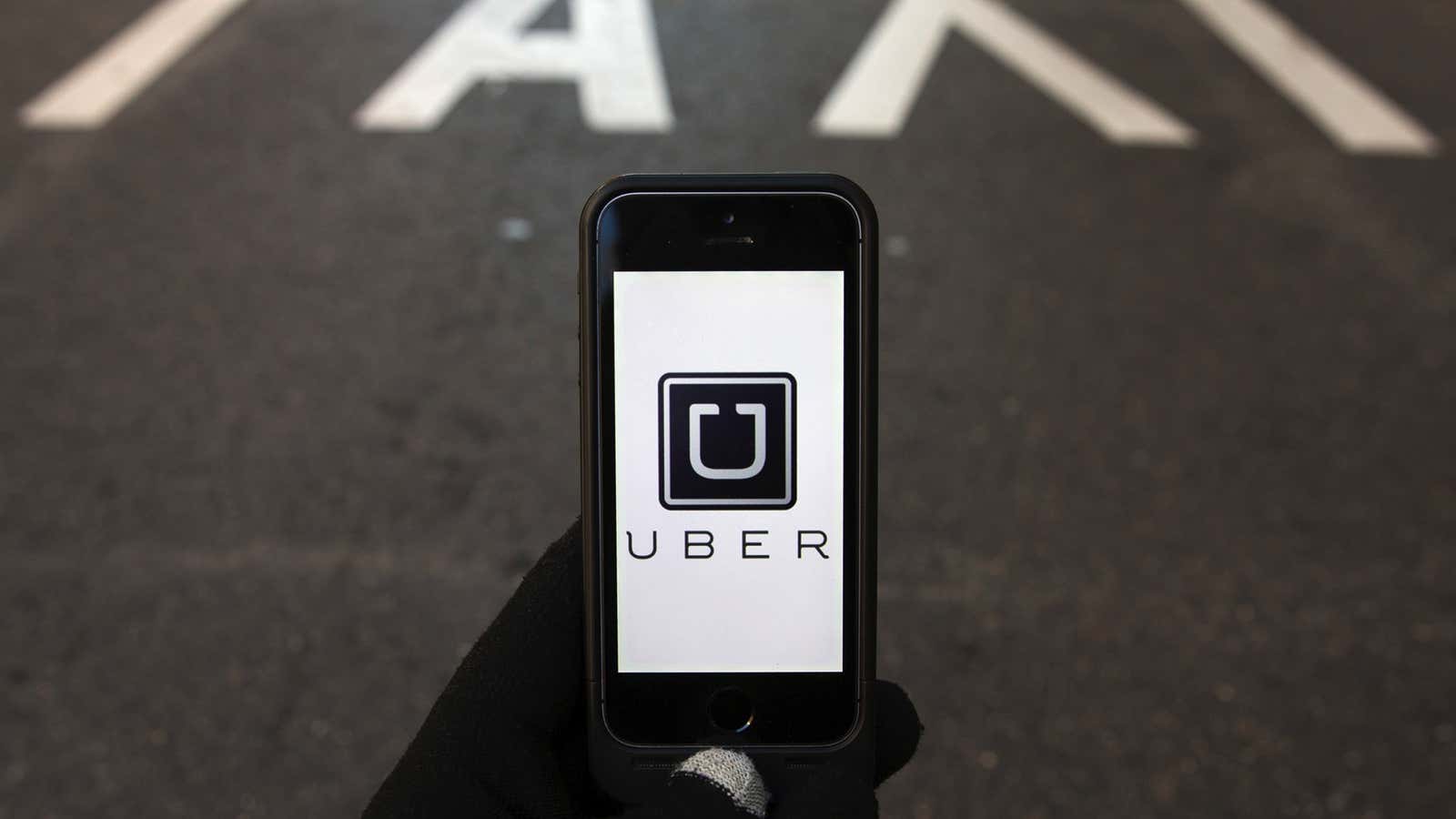A class-action lawsuit in California that has the potential to wreak havoc on Uber’s operations just got a whole lot bigger.
The suit challenges whether Uber drivers are independent contractors, as the company claims, or employees, which would entitle them to a host of benefits such as health insurance and require Uber to pay on-the-job expenses like gas and maintenance that drivers currently pay themselves.
The case was certified as a class action by a federal judge at the start of September and is headed to trial in June 2016. But on Wednesday (Dec. 9), U.S. District Court Judge Edward Chen dramatically expanded the scope of that class-action.
When Chen first granted class certification to the plaintiffs, he limited it on several counts—most notably it excluded drivers who had failed to opt out of an arbitration clause in their Uber contracts. That the case got class certification at all was a blow to Uber, but the company tried to paint it as a win, noting that the fine print on Chen’s ruling meant it would “certify only a tiny fraction of the class that the plaintiffs were seeking.”
That is no longer the case. Chen ruled Wednesday that Uber drivers can take part in the California class action over their employment status even if they didn’t opt out of Uber’s arbitration clause. Chen also ruled that drivers in the class will be able to pursue expense reimbursement claims. In his September ruling, Chen said that the plaintiffs had not adequately demonstrated that it was in the best interest of the entire class to certify the expense reimbursement claim.
Reached by phone, Shannon Liss-Riordan, the lawyer bringing the case against Uber, said she was “very pleased” by Chen’s ruling. ”I was very glad to see that the judge is not allowing Uber to use its arbitration clause to keep most of its drivers out of this case.” Liss-Riordan said Chen’s decision to let the class pursue expense reimbursement is also significant, calling it “the primary source of damages that we’re seeking in the case.”
Uber said in a statement that it will “appeal the district court’s decision immediately.”
There are approximately 160,000 people who have driven for UberBlack, UberX, and UberSUV in the state of California since August 2009. Even under the new ruling, there are still some limitations on the class. For example, individuals who registered with Uber as a corporation cannot join.
Regardless, “it’s going to a be a lot larger than it was from the last order,” Liss-Riordan said.




